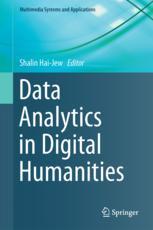

Most ebook files are in PDF format, so you can easily read them using various software such as Foxit Reader or directly on the Google Chrome browser.
Some ebook files are released by publishers in other formats such as .awz, .mobi, .epub, .fb2, etc. You may need to install specific software to read these formats on mobile/PC, such as Calibre.
Please read the tutorial at this link: https://ebookbell.com/faq
We offer FREE conversion to the popular formats you request; however, this may take some time. Therefore, right after payment, please email us, and we will try to provide the service as quickly as possible.
For some exceptional file formats or broken links (if any), please refrain from opening any disputes. Instead, email us first, and we will try to assist within a maximum of 6 hours.
EbookBell Team

0.0
0 reviewsThis book covers computationally innovative methods and technologies including data collection and elicitation, data processing, data analysis, data visualizations, and data presentation. It explores how digital humanists have harnessed the hypersociality and social technologies, benefited from the open-source sharing not only of data but of code, and made technological capabilities a critical part of humanities work. Chapters are written by researchers from around the world, bringing perspectives from diverse fields and subject areas. The respective authors describe their work, their research, and their learning. Topics include semantic web for cultural heritage valorization, machine learning for parody detection by classification, psychological text analysis, crowdsourcing imagery coding in natural disasters, and creating inheritable digital codebooks.Designed for researchers and academics, this book is suitable for those interested in methodologies and analytics that can be applied in literature, history, philosophy, linguistics, and related disciplines. Professionals such as librarians, archivists, and historians will also find the content informative and instructive.